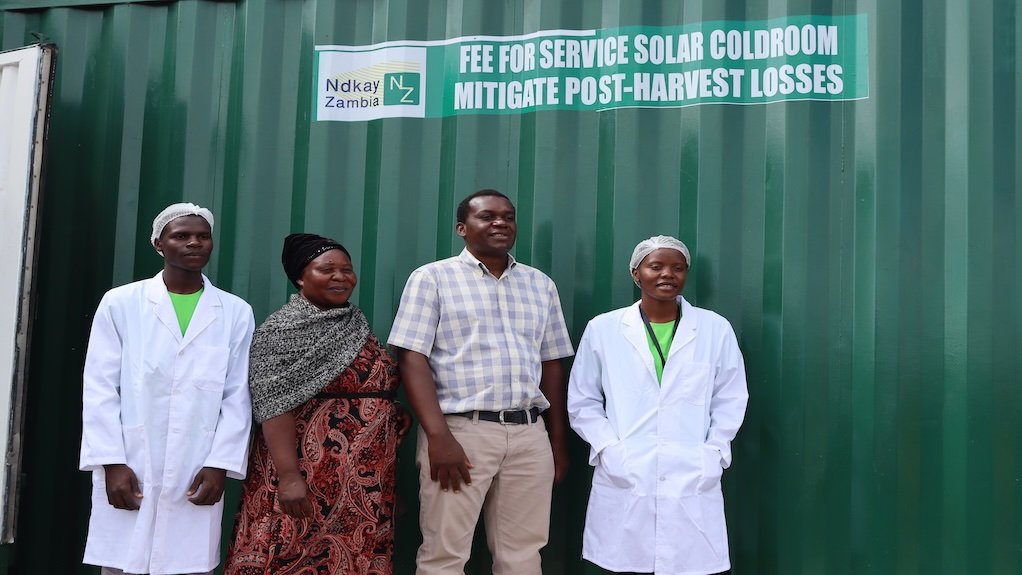Mitigating challenges for Southern African agribusiness as new African markets open
Johannesburg, South Africa - Intra-regional trade dynamics in Southern Africa are changing. The African Continental Free Trade Area (AfCFTA), a landmark trade agreement, promises opportunities for agribusinesses operating in water-energy-food value chains. Encompassing 55 members of the African Union, the trade agreement’s goal is to create the world's largest free trade area.
By eliminating trade barriers (e.g., 90% of tariffs), the agreement unlocks new markets to which regional agribusinesses can expand. Africa could integrate further into global supply chains where goods and services can be moved around freely.
What does the agreement mean for African agribusinesses?
Regional and local value chains will develop, and businesses need to prepare for this change. It is estimated that the agreement will increase Africa’s exports by $560 billion (Kende-Robb, 2021)[1] .
To better navigate the new regulatory environment and succeed in the AfCFTA, agribusinesses should focus on:
- improving productive capacities;
- promoting investment for value addition;
- strengthening competitive advantage;
- building relationships with customers and partners in new markets; and
- leveraging support from governments and development partners.
One company, NDKay, a Zambian firm specializing in solar-powered cold rooms for farmers and market vendors, exemplifies how agribusinesses can potentially benefit from the AfCFTA. With ventures into neighboring Tanzania, NDKay stands poised for further regional expansion facilitated by the AfCFTA's provisions, which streamline cross-border trade and diminish entry barriers.
"Ndkay has had a project in the neighboring Tanzania, and will over the long-term be looking to expand regionally. Currently, [we] have built relationships with different NGOs across borders and thus are looking to leverage those existing relationships in the future."
- Katakwala Mwandila, Co-Founder of NDKay Zambia
What challenges do agribusinesses need to be aware of?
Despite its promising opportunities, the AfCFTA also poses significant challenges. The agreement is complex and member states are at varying degrees of readiness to implement it, which creates an uneven playing field. Many African countries, including those in Southern Africa, face infrastructural and institutional hurdles, such as inadequate capacity to combat smuggling and other illicit practices at nations’ borders.
According to the African Development Bank, the continent’s infrastructure needs are estimated at $130-170 billion a year, with a financing gap between $68-108 billion; this drives most countries’ trade activities outward rather than inward. The infrastructural challenges faced include systemic levels of corruption and limited access to finance. Many traditional commercial lenders have high barriers to entry for small businesses while microfinancing institutions have exorbitant interest rates. In Zambia alone, some microfinancing institutions have effective annual interest rates above 90%[2] or in South Africa where commercial lending rates can be upward of 20%.
The transition to lower tariffs and open markets may also disproportionately affect smaller economies and businesses. For instance, the risk of market consolidation and increased competition could impact smaller agribusinesses’ viability.
Who will help agribusinesses navigate the challenges of new markets?
In this evolving landscape, the Water and Energy for Food (WE4F) Grand Challenge’s Southern and Central Africa Regional Innovation Hub plays a critical role. The program currently ensures that the benefits of AfCFTA are more evenly distributed among various stakeholders in the water-energy-food value chains. WE4F's interventions are particularly crucial in helping these enterprises address the challenges posed by AfCFTA. The hub supports agribusinesses through advocacy, policy dialogues, partner mapping support, policy/regulatory advisory services, and adapting to the new trade regime.
While the agreement presents unprecedented opportunities for growth and expansion, its challenges cannot be overlooked. Supporting agribusinesses to capitalize on the opportunities while mitigating the risks will be instrumental in shaping the future of intra-regional trade in Southern Africa. As the WE4F’s activities will conclude in the next 15 months, the Southern and Central Africa Regional Innovation Hub looks to share key lessons learned with other organizations and programs that currently, or are planning on, supporting agribusinesses as they navigate through a new enabling environment.
To connect with the hub and learn more about the hub’s work please, email: tebogo.masombuka@tetratech.com; o.enokenwabaa@cgiar.org
Authors:
Inga Jacobs-Mata, Director: Water, Growth and Inclusion, International Water Management Institute.
Kahembi Mukuwa, Senior Analyst, Open Capital Advisors
Ojong Enokenwa Baa, Postdoctoral Fellow: Gender and Social Inclusion, International Water Management Institute.
Tebogo Masombuka, Communications and Knowledge Management Specialist, Tetra Tech.
[1] 6 reasons why Africa's new free trade area is a global game changer | World Economic Forum (weforum.org) by Caroline Kende-Robb - Senior Adviser, African Center for Economic Transformation (ACET).
[2] (NON-BANK FINANCIAL INSTITUTIONS: PUBLICATION OF CHARGES, FEES AND COMMISSIONS AND DEMONSTRATION OF THE COST OF BORROWING K1,000 FOR ONE YEAR 2022) Link
Article Enquiry
Email Article
Save Article
Feedback
To advertise email advertising@creamermedia.co.za or click here
Press Office
Announcements
What's On
Subscribe to improve your user experience...
Option 1 (equivalent of R125 a month):
Receive a weekly copy of Creamer Media's Engineering News & Mining Weekly magazine
(print copy for those in South Africa and e-magazine for those outside of South Africa)
Receive daily email newsletters
Access to full search results
Access archive of magazine back copies
Access to Projects in Progress
Access to ONE Research Report of your choice in PDF format
Option 2 (equivalent of R375 a month):
All benefits from Option 1
PLUS
Access to Creamer Media's Research Channel Africa for ALL Research Reports, in PDF format, on various industrial and mining sectors
including Electricity; Water; Energy Transition; Hydrogen; Roads, Rail and Ports; Coal; Gold; Platinum; Battery Metals; etc.
Already a subscriber?
Forgotten your password?
Receive weekly copy of Creamer Media's Engineering News & Mining Weekly magazine (print copy for those in South Africa and e-magazine for those outside of South Africa)
➕
Recieve daily email newsletters
➕
Access to full search results
➕
Access archive of magazine back copies
➕
Access to Projects in Progress
➕
Access to ONE Research Report of your choice in PDF format
RESEARCH CHANNEL AFRICA
R4500 (equivalent of R375 a month)
SUBSCRIBEAll benefits from Option 1
➕
Access to Creamer Media's Research Channel Africa for ALL Research Reports on various industrial and mining sectors, in PDF format, including on:
Electricity
➕
Water
➕
Energy Transition
➕
Hydrogen
➕
Roads, Rail and Ports
➕
Coal
➕
Gold
➕
Platinum
➕
Battery Metals
➕
etc.
Receive all benefits from Option 1 or Option 2 delivered to numerous people at your company
➕
Multiple User names and Passwords for simultaneous log-ins
➕
Intranet integration access to all in your organisation



















